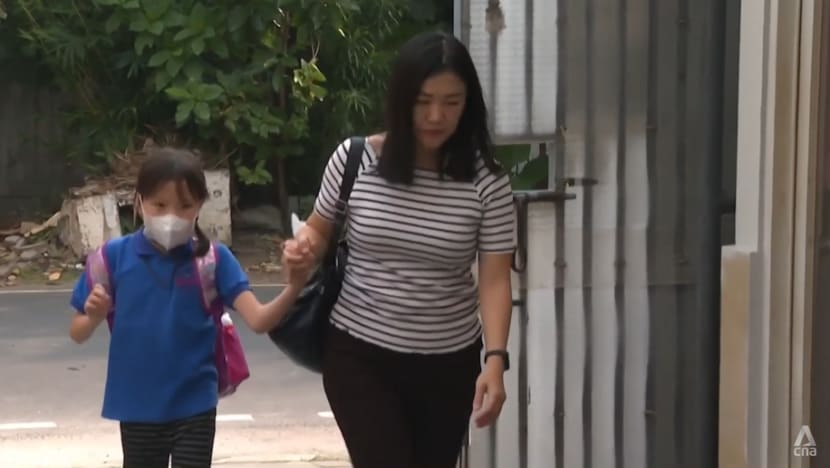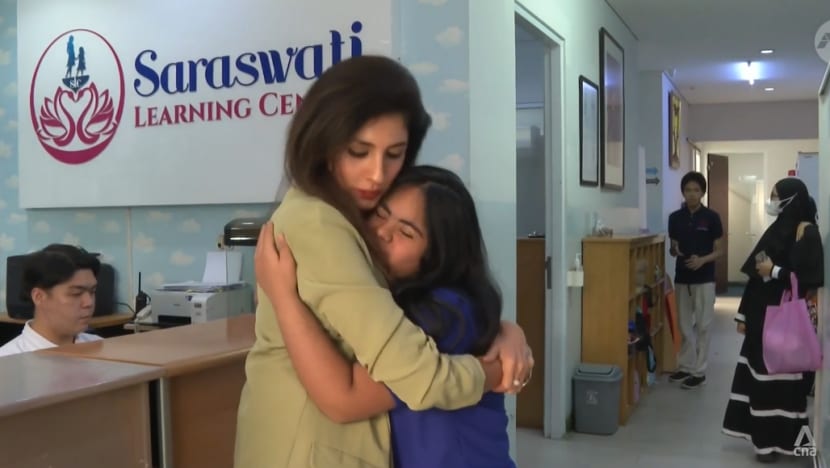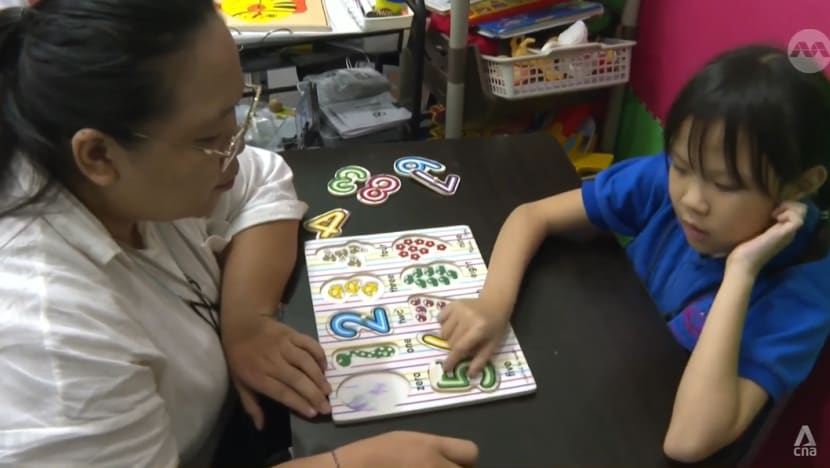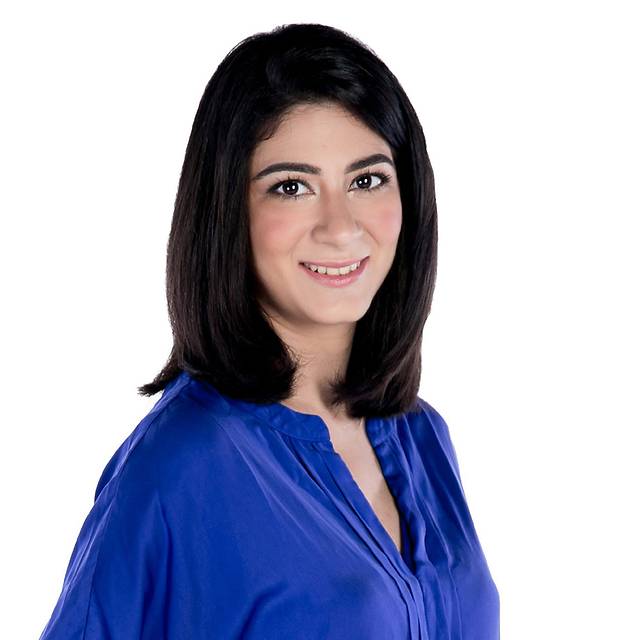Indonesia’s special needs students grapple with shortage of schools, teachers and facilities
The 2,300 schools for special education are not enough for the roughly 23 million Indonesians who have been diagnosed with a disability.

A mother and her daughter arrive at the Saraswati Learning Centre in Jakarta.
JAKARTA: In 2016, Indonesian mother Reshma Wijaya set up a school in central Jakarta for children with special needs.
It was her way of taking matters into her own hands after searching in vain for a suitable education facility for her daughter, Cheryl, who has Down syndrome.
“I Googled for a school catering to special needs … and therapy centres. But where were they? It was very, very difficult to find these facilities and services for my daughter,” the 41-year-old mother said.
Today, Cheryl is 13 years old and studying at the school – the Saraswati Learning Centre. It provides care for up to 100 children and teenagers with special needs, from newborns to even those over 18-years-old.
The centre has been recognised by the education ministry as a “Sekolah Luar Biasa”, designating it as a school for special education.
HELPING THOSE WITH DISABILITIES
The institution hires professionals to conduct assessment and diagnosis for children coming in. It also initiates various programmes and therapy sessions for its students, alongside an educational curriculum.
Every child at the centre has access to a multi-disciplinary team that consistently informs each other and works towards the development of the child.
Its teachers educate students with specialised methods such as the Teachh technique, an evidence-based academic programme founded on the idea that autistic individuals are visual learners.
The facility has made life easier for children with disabilities and their parents living in Jakarta, such as Ms Fenny Rusli and her daughter Kayla. The 8-year-old has been diagnosed with autism spectrum disorder (ASD) and has been with the centre for almost five years.
Having children with different disabilities study together in the same classroom has contributed towards a more inclusive mindset, said Ms Reshma.

“Parents were not welcoming, they were not liking the idea of having Down syndrome and autistic children in one class,” she said.
“They were afraid that the Down syndrome child would copy the autistic child. So, that was also one stigma that I had to remove and also create awareness that they are actually growing well together ... and as long as they are safe.”
Older children at the centre go on to have training sessions by a vocational unit to prepare them for life after graduation.
During those lessons, students are taught how to open their own bank accounts, and make simple handicraft to sell. A bracelet, for instance, is sold for about US$4.
SOCIETAL PRESSURES
Having these students go out into the real world comes with the pressures of society, said Ms Caesar Astria Pusphita, a clinical psychologist at the centre.
“'What exactly can they do? Actually, what do they do?' People ask me such questions. That is what makes me sad,” she said.
“They are just like us – they are growing, we are also growing. We are also supporting them in how they can be functional in society. How can we help them to be able to stand on their own feet?”
While parents of children with disabilities say that positive changes have been made in recent years within Indonesia's landscape and society with regards to awareness and acceptance, more work needs to be done.
“Other people looking at the special needs children – they feel they are a little strange or they look at them with a negative lens,” said Ms Fenny.
“But we don't need to feel discouraged because this response from people is very normal. It is we, ourselves, whose hearts must be open. We must guide others to understand our (children’s) condition too.”

GOVERNMENT NEEDS TO DO MORE
About 23 million Indonesians have been diagnosed with a disability. However, the country only has about 2,300 schools for special education.
The rest of the schools in the country are mandated by the government to be inclusive.
Yet, many special needs children still find difficulty in accessing education. Schools say they face challenges such as getting trained teachers and proper facilities.
In a bid to support those who are disabled, the government recently passed a number of regulations derived from the 2016 Law on Persons with Disabilities. These regulations did not exist prior to 2019.
They include implementation of social welfare and support, fulfilment of rights, accessibility to public services, and disaster protection.
Still, progress is slow and social services experts said authorities need to be pressured to do more.
“The government needs to be guided. If we just keep quiet about it, they will just be quiet (on the issue). So yes, we have to push them,” said Ms Angkie Yudistia, special staff to the president for social affairs.
“But the issue is complicated, it's multi-sectoral. You can't blame the government 100 per cent either because it goes back to the same question – how to start,” she said.
Read this story in Bahasa Indonesia here.










.png?itok=YylxJ-Fg)





